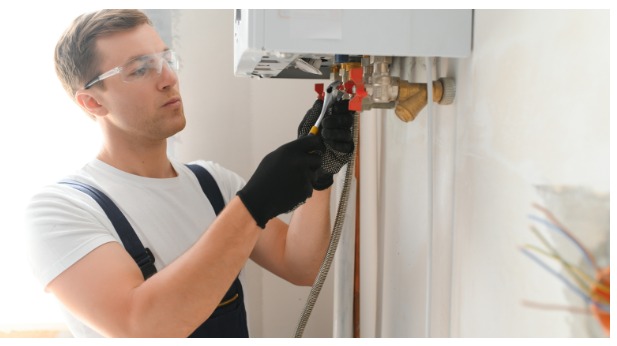As winter weather sets in, the cold temperatures can pose significant risks to your plumbing system. Frozen pipes, clogged drains, and heating issues are just a few examples of common plumbing problems that arise during the colder months. That’s why it’s essential to take preventive steps to protect your pipes and ensure your plumbing remains in good working order. Cole’s Plumbing provides top-notch plumbing services to help homeowners winterize their systems, but with a little proactive maintenance, you can minimize the likelihood of costly repairs.
Here are some winter plumbing tips that will keep your pipes running smoothly all season long.
1. Insulate Your Pipes
The greatest threat to your plumbing in winter is through the development of ice on the pipes. If water in your pipes is freezing, it will expand and this will make your pipes crack and burst when the weather is very cold. This fashion keeps the temperature or rather the consistency of water inside pipes and this will rarely freeze.
Tip: Check parts of the house where pipes are most vulnerable to cold air drafts, for instance basements, attics, and crawl spaces. Some of the relatively exposed pipes can be covered with foam pipe insulation or heat tape. For even more insulation, it would not be bad to add insulating material to the exterior of the faucet also.
- Let Faucets Drip
Dripping faucets is good in winter season because it helps to prevent pipes from freezing and to avoid this, you should allow the water to pass through the pipes. If you turn your faucets to allow water to slowly drip, this can help keep your pipes from freezing.
Tip: Concentrate on exterior faucets or structures in parts of your homes not likely to receive the direct heat from the sunshine, as these are most likely to freeze.
- Seal Gaps and Cracks
It can infiltrate through tiny crevices within your home’s exterior, and in the vicinity of windows and doors causing temperature decrease near pipes. Make some time and briefly check your house for any loops that a cold air can use to get in especially at points where there are pipes.
Tip: Seal gaps or spaces by having the house fill up with water by using caulk or weather stripping in windows, doors, and pipes. This simple technique enables the home retain heat from outside and at the same time protect the pipes from freezing.
4. Keep Your Thermostat Consistent
One important thing that you need to ensure during winter is that the inside environment of your home does not fluctuate. Do not crank down your thermostat at night or when you are out of the house for a long period of time. What happens is that due to rapid change in temperatures, the pipes may end up freezing.
Tip: You should always maintain your thermostat at or above 55 degrees at day and night in order to avoid instances of frozen pipes especially in the areas where the climate is cold.
- Check for Leaks
It would be unwise to wait for the winter to arrive before you start looking for professional plumbers to help you solve your problems; it is always good to perform a quick check around your faucets, pipes and even your water heater for any signs of leakage. Undetected leakages throughout the colder period can cause more harm such as the formation of molds and water damage and, of course, wastage of energy.
Tip: Look at visible pipes to see if there are any signs of leakage and do not forget your water heater. A small hints or drops should be repairs on a spot basis so that they do not turn into a big problem.
- Disconnect Garden Hoses
If you have hoses that are installed outside your house, do not forget to disconnect them when the cold season starts. Many hoses are left attached to outside faucets and freeze and then pop the faucet and the connected pipes penetrating the house. This can lead to huge losses to your Plumbing Tips.
Tip: Always flush off water on hoses before storing especially if there is a possibility that the water may freeze and crack the hose material.
7. Check Your Water Heater
Your water heater works harder during the winter months as it produces more hot water for your household needs. It’s a good idea to give your water heater some attention before the cold weather hits to make sure it’s functioning efficiently. This includes checking the thermostat settings and flushing the tank to remove sediment buildup.
Tip: Set your water heater thermostat to 120°F, which is the optimal temperature for energy efficiency and preventing scalding. You can also have the unit professionally inspected for any signs of wear or malfunction.
Conclusion
Winter can take a significant toll on your plumbing system, but with the right precautions in place, you can minimize potential damage. By insulating pipes, sealing air gaps, and ensuring your water heater is working efficiently, you can keep your plumbing in top shape throughout the cold season. If you’re unsure about winterizing your plumbing or encounter any issues, Cole’s Plumbing is always ready to assist with expert plumbing services to safeguard your home during the colder months. Follow these essential winter plumbing tips to stay ahead of the cold weather and avoid Plumbing Tips emergencies.
Read more: https://newsdusk.com/



